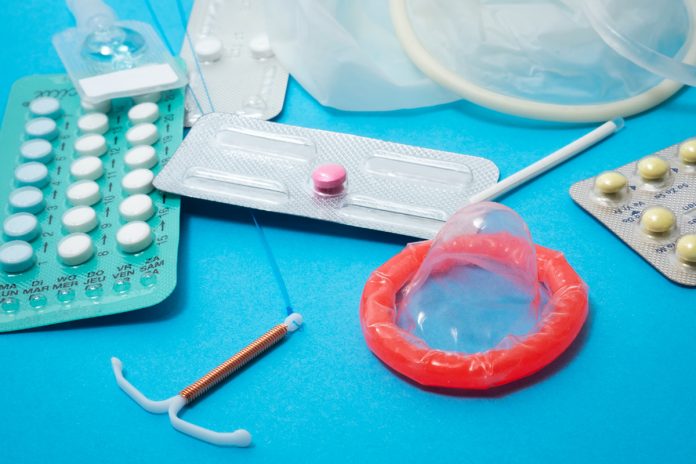Susan Bunn, Inform Health, discusses how technology can enable access to sexual health provision during COVID-19 and beyond
The COVID-19 pandemic has taught us many lessons. When it comes to sexual health, a key learning is that technology is essential in maintaining access to vital services, despite unprecedented challenge that has seen 54% of the UK’s sexual health services closed and 38% of sexual health staff redeployed to other parts of the NHS1.
Even before the pandemic struck, the state of the UK’s sexual health was becoming cause for concern, with a new STI diagnosis in England almost every minute and cases of Gonorrhoea and Syphilis increasing by 249% and 165% respectively in the decade leading up to 20182.
Couple this with a 25% government cut in sexual health spending in England since 2014, and record demand for sexual health services, which topped 3.3 million patient visits in England last year3, and the public health timebomb is clear for all to see.
With the fight to reduce transmission of COVID-19 demanding new ways of operating – and with an existing need to extend provision to adequately meet increased demand against the context of a significantly reduced financial envelope – patients must be empowered to self-manage their own sexual health digitally.
Exploring the digital front door
If patients were given the opportunity (and platform) to test themselves for STIs online by creating a patient record and ordering a postal kit then, assuming negative results, services could be effectively delivered, without patients stepping foot in clinics. By integrating such systems, like Inform Health’s new Personal Health Record (PHR), with labs, services could be delivered far more cost-effectively and conveniently.
Should postal kits return non-negative results, patients would need to be notified appropriately. Inform’s PHR delivers discreet automated text messages to patients indicating that a new message is ready to view on their online dashboard. Once securely accessed, this message instructs the patient to book an appointment through the platform to discuss results, treatment options and preventative measures. PHR also automates the partner notification process, offering significant time and cost savings for clinics.
Additionally, PHR can integrate with pharmacies so patients can receive medication at a time and location of their choice for common conditions, like chlamydia, while push notifications provide a safety net; facilitating clinic intervention, should patients stray from their online treatment pathway.
Creating a unified patient record
The joined-up, electronic patient record PHR creates (for the patient, by the patient) also helps services do more with less.
Rather than use precious clinical resource, patients can document their own histories and contribute to their own electronic record, so clinicians no longer need to run through the same questions at the start of consultations. Instead, up-to-date information is completed by patients before their appointment, pre-populating the patient record ready for clinician review during consultations.
Accessing repeat contraception, which typically involves a physical appointment with a healthcare professional, can also be self-managed by patients via PHR.
A logical evolution of sexual healthcare provision
Migration towards online triage systems that collect specific data before directing patients to the most appropriate pathway of care is a logical evolution of sexual health and one that is being fast tracked by many NHS Trusts as a result of COVID-19.
Systems like PHR aren’t just needed to cope with fewer staff, clinic closures and social distancing protocols of today, but to future proof provision in the aftermath of the pandemic too.
To find out more about Inform Health’s new Personal Health Record, visit our website or contact us.
Customer quote
Solent NHS Trust recently became the first in the UK to go live with Inform’s PHR, a move that will facilitate an integrated approach to remote provision of sexual health services through the COVID-19 crisis and beyond. Ynez Symonds, Solent’s Sexual Health Services’ Modern Matron, explains the pertinence of the implementation, which took place in May 2020:
“Our patients are at the heart of everything we do. Improving access and supporting patients in their interactions with Sexual Health, in addition to being able to analyse the data they provide us, is really important, as it enables us to effectively target our services where needed.
“We previously used a system that required patients to input their demographic information every time they needed to request a self-sampling kit or access condoms online. We are always keen to seek feedback and improve our patients’ experience. One of the key benefits of developing an integrated approach and reducing our multi-system platforms is that we can better understand how our services are being accessed and how we can tailor provision in the future.
“Although, like all NHS providers, we’re focused on dealing with the current crisis and adapting services to minimise the risks of COVID-19 transmission, PHR remains a top priority for us. I see it marking a real turning point for how patients access services and take greater control of their sexual health and wellbeing. I also think PHR will play an integral role in helping us to better target health promotion messages through quality data delivered through system integration.”
References
1 https://www.bbc.co.uk/news/newsbeat-52488892
2 https://www.bbc.co.uk/news/newsbeat-51385824
3 https://www.bbc.co.uk/news/uk-45380927
Please note: This is a commercial profile











